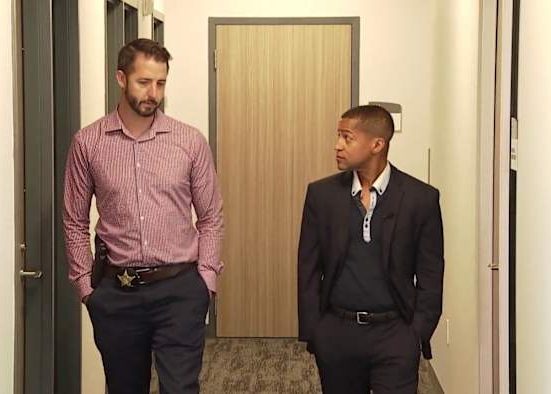Michigan must prioritize investing in students from low-income backgrounds who are farthest behind in post-pandemic learning if it wants to stop its slide to the bottom nationally in K-12 education metrics, a new education report released Thursday says.
“Meeting the Moment,” a report by EdTrust-Midwest, a Detroit-based nonpartisan nonprofit organization, found that in the 2024-25 school year, Michigan ranked in the bottom ten in the nation for its funding formula for students from low-income backgrounds among states with similar systems.
The state already ranks at the bottom nationally when it comes to state and national assessments. Michigan’s stagnant reading recovery places it in the bottom five states nationally for pandemic learning loss since 2019. In 2024, Michigan ranked 44th in the country for 4th-grade reading and 31st for 8th-grade math on a national assessment.
The 25-page report, which was sent to lawmakers, the governor and other education officials, noted that Michigan school districts across all geographic regions are behind where they were performing in 2019 before the global pandemic shuttered schools. EdTrust-Midwest researchers found that school districts in rural areas, suburban areas and towns continue to show large gaps in student proficiency between 2019 and 2024.
With the report, EdTrust officials and members of a bipartisian coalition of organizations across the state are calling on leaders on both sides of the aisle in Michigan to invest in and prioritize strategies that improve outcomes for vulnerable student groups.
Its findings come amid uncertainty for the state’s and nation’s public schools as the Trump administration has slashed the workforce at the U.S. Department of Education, vowed to dismantle the department and threatened to claw back or cancel funding.
Amber Arellano, executive director for EdTrust-Midwest, said at stake is $2.4 billion in funding, support and oversight for Michigan’s 1.4 million public school students.
“This is a moment for Michigan to lean in and invest more in our vulnerable students, especially as research shows that increased investment in students with the greatest needs deliver results,” Arellano said.
“As the federal leaders increasingly take actions that threaten funding for vulnerable students, Michigan’s underfunding of public schools becomes even more dire,” she said. “State leaders should prioritize investing in students with the greatest needs, particularly children from low-income backgrounds, who have been hit the hardest by this underinvestment in our public schools and who are the farthest behind after the pandemic.”
In its report, EdTrust researchers cited research from California, where an investment of an additional $1,000 per pupil for three consecutive years improved students’ math and reading achievement, reduced the likelihood of repeating a grade, decreased suspensions and expulsions and increased the likelihood of high school graduation and college and career readiness.
Last month, Michigan Democrats who control the state Senate proposed a more than $1 billion funding increase for the public school system. State Sen. Darrin Camilleri, D-Trenton, has said he wants to expand the School Aid Fund budget from $20.6 billion to about $21.8 billion and hike the per-student foundation allowance by $400 from $9,608 to $10,008.
The Legislature is beginning the process of crafting a budget for next year, with Democrats hoping to have a financial plan for schools in place by July 1.
Among the report’s other findings:
— In Michigan’s 2024 state assessment, students from low-income backgrounds, Black and Latino students, multilingual learners and students with disabilities all fell at least 10 percentage points below the statewide average on both the 3rd-grade reading and 7th-grade math tests.
— Fewer than one in five Black students were proficient in third-grade reading on the test. In 7th-grade math, the proficiency rate for Black students dropped to fewer than one in 10. Fewer than one in five students with a disability were proficient in third-grade reading; fewer than one in 10 were proficient in 7th-grade math.
Molly Macek, education policy director at the Mackinac Center for Public Policy in Midland, said education funding has increased dramatically in Michigan — by over 35% in the past 10 years —without tangible improvements in student success.
“And during that same timeframe, we’ve seen student performance decline. So it’s important to keep in mind that yes, I think we all can agree the research supports that students from disadvantaged backgrounds or at-risk students generally cost more to educate,” Macek said. “But simply allocating more funds and expecting better results is a short-sighted.”
Macek says lawmakers should prioritize strategies that are known to improve outcomes and take a critical look at where money is being spent now.
“Are they spending (funds) in a way that are most likely to have the greatest impact?” she said.
State Superintendent Michael Rice said the state’s schools remain underfunded by billions of dollars, according to the findings and recommendations of a study of the School Finance Research Collaborative, despite historic investments in education in the last few years that still fall far short of making up for two decades of underfunding.
“The State Board of Education, Michigan Department of Education, and I will continue to call for increased and more equitable funding for our schools,” Rice said in a statement.
Beyond a financial investment, Rice said other reforms are needed to improve student achievement, for all students but particularly for students in low-income schools.
“We are advocating for smaller class sizes in grades K-3 high-poverty classrooms, mandatory Language Essentials for Teachers of Reading and Spelling (LETRS) training on the science of reading, and more in-person instructional time for students,” Rice said.
Education advocates from across Michigan called on state leaders to create new systems of fiscal transparency and accountability for public school funding, including members of the Michigan Partnership for Equity and Opportunity (MPEO) coalition, a non-partisan coalition of business, non-profit, philanthropic and civic leaders from across the state.
Mike Jandernoa, a chair for the MPEO and a West Michigan business leader, said a greater investment— and a greater return on that investment — is more important than ever.
“Policymakers should put systems in place for greater fiscal transparency and accountability to ensure dollars for students with the greatest needs reach them in their schools,” Jandernoa said.
jchambers@detroitnews.com







